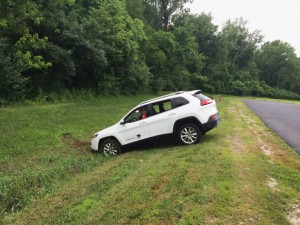
First Chrysler Automotive NV issued recalls for some 1.4 million cars and trucks equipped with radios that were shown to be conduits for hacking, based on the results of the experiment. It involved a group of software programmers who proved that a Jeep Cherokee being driven down a Missouri highway could be hacked. Fortunately, there have been no real-world examples of such activities. Fiat Chrysler stressed that the experiment was undertaken out of “an abundance of caution.”
The company acted very quickly to block unauthorized access to some of its vehicles systems by alerting owners through an aired update.
Wired Magazine reported on the simulated hacking in a recent issue. As reported by the employee who was assigned to drive the targeted vehicle, this is how it went:
First of all, the vents in the Cherokee began pouring cold air into the car, although he had not touched the dashboard controls. Then the radio began, on its own, to blast hip-hop music that the driver couldn’t turn off, even by punching the power button. The windshield wipers came on, blurring the glass with wiper fluid, again without the driver’s intervention.
The car’s digital display then coughed up a picture of the two “hackers” in their trademark track suits: a subtle nose-thumbing as they proved they could trump the driver’s control of the vehicle. To simulate a real “highjacking,” they did their work from the driver’s home, 10 miles from where he was tooling down the freeway.
This was all a planned test, so the driver wasn’t flummoxed by the car’s behavior, even though he didn’t know in advance exactly what the “hackers” planned to do. They had only assured him they wouldn’t do anything dangerous. He had come to St. Louis for the express purpose of testing out the car-hacking research the company was conducting. The test proved what they had concluded: that it was possible for a hacker to gain wireless control over the vehicle. Steering, brakes and transmission all were vulnerable, as well as the onboard entertainment system. In theory, a hacker with a laptop far removed from the vehicle could take over control of its functions.
The thought of losing control of your vehicle while in motion is not a happy one. Drivers may have cause to be grateful to manufacturers such as Fiat Chrysler Automobiles NV that are anticipating incipient problems and nipping them in the bud.
Included in the list of vehicles being recalled for preventative updates are the 2015 versions of Ram pickups, Jeep Cherokee and Grand Cherokee SUVs, Dodge Challenger sports coupes and Viper supercars.






